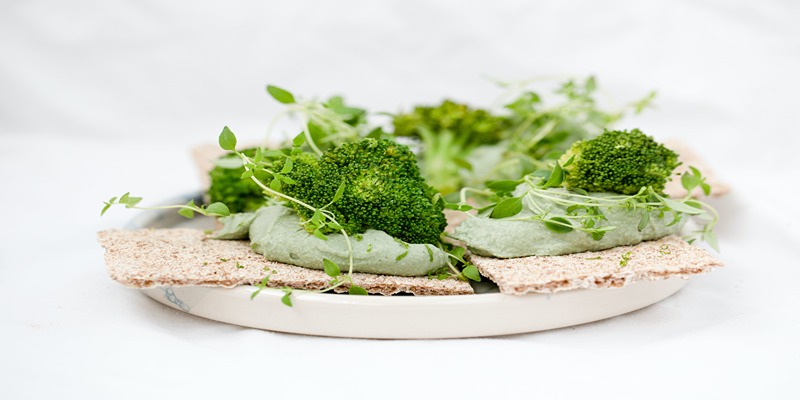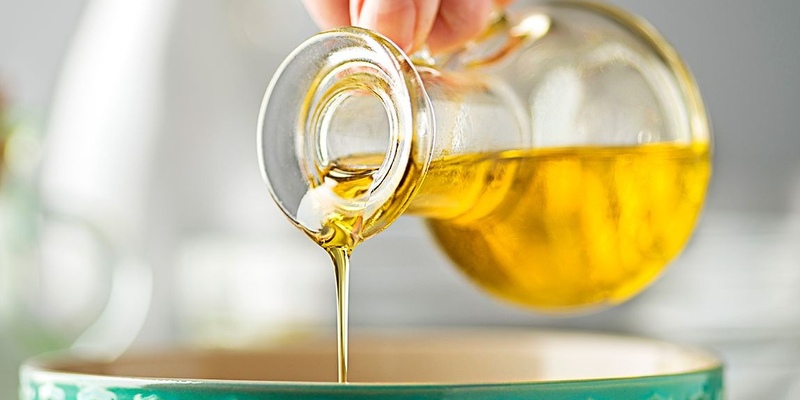Spirulina's Remarkable Health Impacts - Nature's Superfood Revealed
Nov 08, 2023 By Madison Evans
Blue-green algae Spirulina can flourish in brackish and saline aquatic environments. It was held in high regard by ancient civilizations as a dependable provider of sustenance. In recent times, it has been given the esteemed designation of "superfood" due to its extraordinary nutritional density. Spirulina distinguishes itself from conventional meals by containing an extensive array of vitamins A, B, C, and E, in addition to all nine essential amino acids. Moreover, it functions as a significant repository of iron, magnesium, and a number of other minerals. As a result of its substantial assortment of beneficial nutrients, it is critical for the promotion and maintenance of general health.

Spirulina Health Benefits Uncovered
Nutrient Composition and Potential Health Gains
Spirulina and multivitamins are comparable in a number of respects. It is abundant in vital nutrients required for the proper operation of the body. Spirulina, classified as a microalgae, provides significant health benefits notwithstanding its minuscule size. Muscle development-critical proteins are present in high concentrations within the green filaments. It is composed of vitamins that promote cognitive function and endurance. The process of oxygen transportation within the body is reliant on the presence of substances like iron in the blood.
Essential Vitamins and Minerals in Spirulina
Spirulina is abundant in essential vitamins B1 and B2, both of which are critical for epidermis and eye health maintenance. Iron prevents excessive lethargy, whereas magnesium supports the health of the neurons and muscles. Spirulina powder is nutritionally equivalent to the accumulated nutritional value of a complete assortment of nutritious dishes found in a supermarket. A modest quantity incorporated into a lunch salad or morning smoothie could potentially yield a substantial influence. This diminutive plant is remarkable in that it supplies the body with the vital nutrients necessary for strength and vitality.
Spirulina in Disease Prevention and Health Promotion
In addition to functioning as a nutritional supplement, Spirulina provides the body with a protective barrier. Its high protein and vitamin content renders it advantageous for the prevention of diseases. By consuming this algae, one's body's capacity to combat disease is strengthened. The nutrients it comprises will afford substantial advantages to the brain, blood vessels, and cardiovascular system. Possible side effects of incorporating spirulina into a regular diet include a decrease in the number of days an individual spends in an ill state. It is comparable to ingesting natural remedies in order to develop an internally robust and vigorous physique.

Immune Boosting Properties of Spirulina
As a catalyst, Spirulina facilitates the enhancement of the immune system. This increases the robustness of the erythrocytes within the organism. Our systems rely on these cells to defend against the numerous viruses and pathogens that we encounter every day. By enhancing the functionality of these cells, Spirulina establishes a barrier of protection. This is especially advantageous when our immune systems are at their most vulnerable, such as during seasons of transition. The integration of spirulina into a consistent dietary regimen enhances the vigilance of the immune system, thereby better equipping it to repel foreign invaders.
Antioxidant Capacity and Detoxifying Effects
The purifying properties of spirulina are denoted by its vivid green hue. It contains antioxidants that mitigate the damaging effects of free radicals, which are accountable for degenerative diseases and premature ageing. Antioxidants can be equated to the maintenance staff of the body due to their role in cellular debris elimination and inflammation regulation. Consistent intake of spirulina has been linked to improved hepatic function, which is an essential component of the inherent detoxification systems of the body.
Spirulina Dietary Impact: Integrating into Daily Life
Incorporating Spirulina into Daily Meals
Integration of spirulina into one's dietary regimen may yield substantial health benefits that outweigh any potential drawbacks associated with its utilization. This cyanobacterium, distinguished by its bluish-green hue, is an effortless addition to your daily diet and complements a variety of culinary techniques. To bolster the nutritional content of salads or incorporate the powder into smoothies for a nourishing breakfast, simply sprinkle it on top. Additionally, soups and condiments can be fortified with Spirulina powder, which imparts protein to the dish without substantially modifying the flavour. Spirulina could potentially offer advantageous properties as an additive to homemade energy bars or confections, especially for individuals who are craving flavour. In addition to its remarkable nutritional composition, it functions as a visually enticing food colouring component.
Recommended Dosages and Forms of Consumption
Sustained and moderate consumption of spirulina is advised. It is frequently recommended by health experts to commence with a daily dosage of one teaspoon of powder or one tablet, and subsequently escalate the quantity as the body adjusts. However, it is critical to refrain from exceeding the prescribed daily dosage, as doing so could result in unfavourable adverse effects.
Finding the Right Balance: Tablets vs. Powder
The determination of whether to utilize spirulina in powder or tablet form is a matter of personal preference and practicality. Tablets provide an ideal solution for individuals with time constraints who desire a nourishing and expedient energy source, eliminating the need to prepare meals. However, individuals who are inclined towards exploring culinary possibilities may appreciate the powder's adaptability. Whether in powder or capsule form, spirulina's health benefits can be obtained, contingent upon the user's preferences and culinary needs. Determining the ideal moment to incorporate this exceptionally nutritious meal into your daily schedule will guarantee that you reap its health benefits.
Superfood Nutrition: Understanding Spirulina's Role
Regarding nutrients, spirulina could potentially compete with kale, chia seeds, and acai berries. The plant is notable for its substantial protein content, which is on par with that of meats, as well as its exceptional concentration of vital vitamins and minerals. In contrast to alternative nutrients, Spirulina's year-round availability and adaptability to a wide temperature range contribute to its unparalleled popularity. By virtue of its prolonged longevity and reduced carbon footprint, this has been meticulously crafted with sustainability and longevity in mind. Although blueberries are frequently lauded for their antioxidant properties, spirulina possesses a significantly higher antioxidant capacity per gram.
The synergistic effects of Spirulina are augmented when it is combined with additional nutrients. The combined effects might be more easily assimilated and offer more substantial benefits. Spirulina, for instance, improves the assimilation of iron when combined with vitamin C-rich foods; this property is especially vital for individuals suffering from iron deficiency anaemia. The bioavailability of spirulina's constituents is critical to its efficacy. This phenomenon may be exacerbated at times when spirulina is combined with other food items. Lipids may facilitate the absorption of fat-soluble vitamins in Spirulina; however, certain minerals, such as those found in lemon juice in a dressing, are more readily absorbed in acidic environments. The critical element lies in the exact combination, such as when spirulina is added to a citrus-infused smoothie in order to maximize its entire array of benefits. By exercising prudence when incorporating spirulina into your diet in this way, you may enhance your body's utilization of its extensive array of nutrients.
Conclusion
Spirulina has garnered recognition as a potent nutrient due to its numerous advantageous health effects. One benefit of incorporating it into their dietary regimen is its simple assimilation into routine dishes and its exceptional nutritional composition in comparison to a number of alternative nutrients. To maximize the beneficial effects of this substance, it should be consumed in the most efficient manner possible, which entails dosage vigilance and dietary supplementation to enhance absorption. Individuals in search of a more comprehensive strategy to improve their overall health should consider Spirulina, given its extensive range of potential uses.

Understanding Sugar's Importance in Our Body

Nutritious Chocolate Flaxseed Brownie Recipe With Cocoa

Signs Not Getting Enough Nutrients - 10 Weird Indications

Choosing the Right Cooking Oils for a Healthier You

Spirulina's Remarkable Health Impacts - Nature's Superfood Revealed

How Reversible Is Lyme Disease?

Why Does Hip Mobility Matter and How Can You Boost It?


